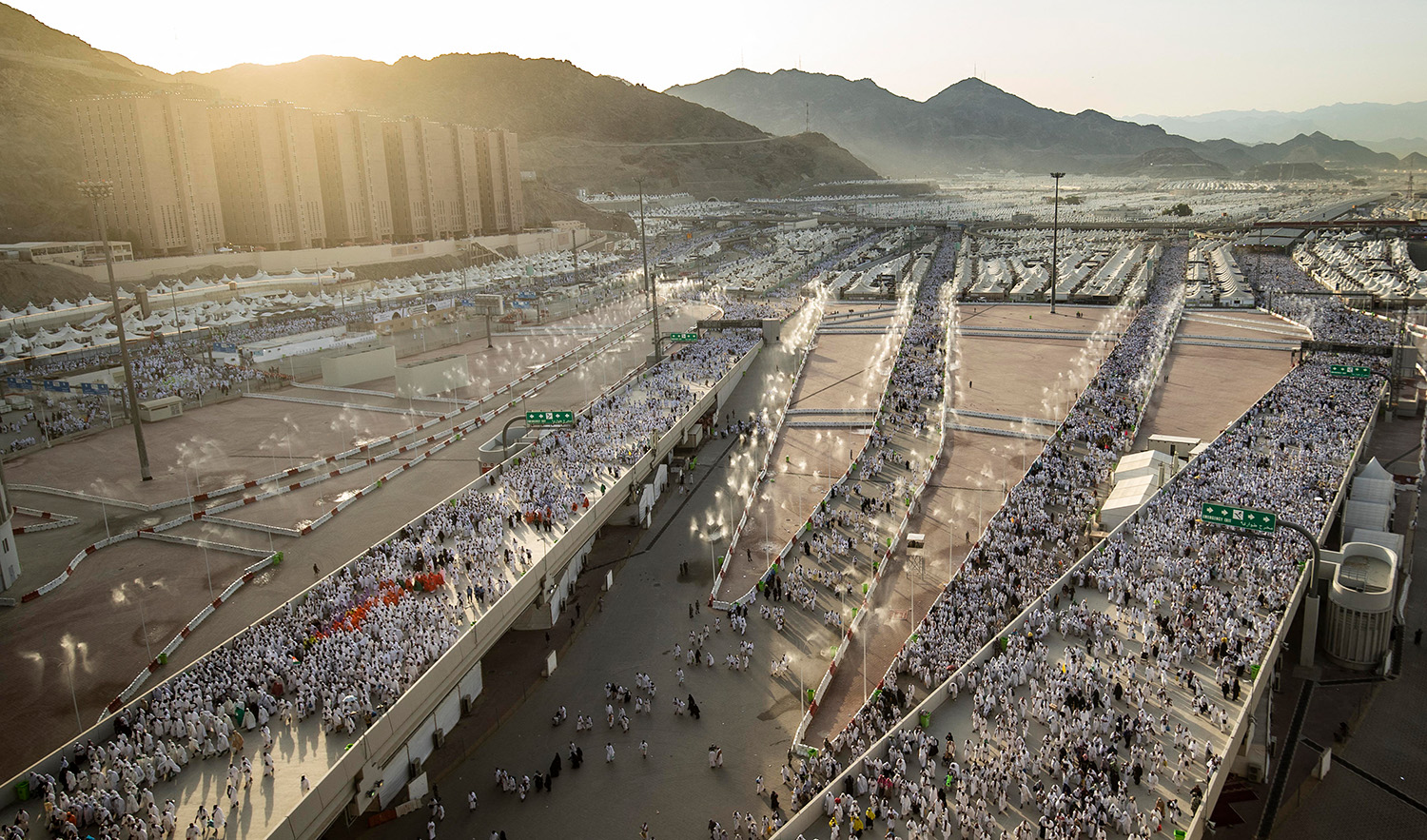ISLAMABAD: Pakistan’s religious affairs ministry said on Tuesday the government would announce the Hajj policy for this year in the first quarter of March after securing formal approval from the federal cabinet.
The Hajj is an obligatory spiritual journey for adult Muslims with physical and financial means, requiring them to visit the holy cities of Makkah and Madinah at least once in their lifetime. It is also one of the five central pillars of the Islamic faith.

Thousands of Muslim pilgrims make their way across the valley of Mina, near Makkah in Saudi Arabia, to perform the "stoning of the devil" ritual which marks the start of the Eid Al-Adha holiday on July 9, 2022. (AFP/File)
Earlier this year, Saudi Arabia restored Pakistan’s pre-pandemic Hajj quota of 179,210 pilgrims while abolishing the upper age limit of 65 years.
“The ministry will announce the Hajj policy for 2023 in March as we are sending a summary of the policy to the federal cabinet in the first week of the coming month and will announce it publicly once it is approved,” Muhammad Umer Butt, a spokesperson for the ministry, told Arab News.
He said that relevant officials in Islamabad were working with Saudi authorities to decide the final pilgrimage cost this year, adding it would also be specified along with the policy.
“The cost for Hajj this year has been tentatively set at about Rs1.1 million,” he continued while pointing out the high cost was due to a combination of factors, including the depreciating value of the national currency, increase in taxes and rising fuel prices in Pakistan.
Butt maintained even if the Saudi government decreased the Hajj package, the cost for Pakistani pilgrims would still be higher than the previous years due to the prevailing currency exchange rates.
“The government and private quota for the pilgrimage will be decided after the cabinet’s approval of the policy,” he said.
The spokesperson said there was a proposal to fix a 25 percent quota to allow overseas Pakistanis to pay for Hajj pilgrimage in dollars through international remittances.
“By paying in dollars via international remittances, either for themselves or their families residing in Pakistan, they will be allowed to be included without the need for balloting on 25 percent quota, which amounts to almost 22,000 individuals,” he added.
Due to the economic crunch faced by the country, Butt said it would be hard for the government to provide any subsidy this year. However, he informed that efforts were being made to put minimum burden on pilgrims by securing better boarding and lodging deals in the kingdom.
“Pakistan’s Hajj mission in Saudi Arabia is trying its best to get the best facilities at the lowest possible rates to minimize the cost of pilgrimage,” he added.
Last year, the government provided a subsidy of Rs4.88 billion which reduced the Hajj expense for each pilgrim under the government scheme by Rs150,000.
The ministry's spokesperson said Saudi Arabia recently announced online Hajj registration for several countries, though Pakistan was not included due to a lack of understanding among its elderly citizens of how to use the internet technology.
“For Pakistan, the practice will remain like it used to be in the previous years,” he added, “where banks will act as agents to facilitate the registration process.”












